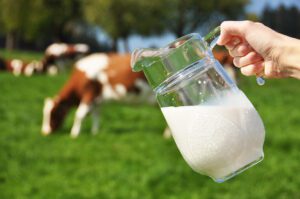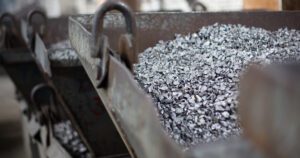
In March this year, Ukrainians registered 8.3 thousand used cars imported from abroad during the war, Ukravtoprom reported.
“This is much less than a year earlier (-76%), but this result was 15 times higher than the March market for new passenger cars,” the association’s website said on Thursday.
As reported, registrations of new passenger cars in March 2022 fell by 16.5 times compared to the “covid”, but peaceful March of last year – up to 546 units.
According to the Association, the most popular used car in March this year was Volkswagen Golf with 484 registrations, Renault Megane is second with 472 units, Volkswagen Passat is in third place with 422 customs cleared and registered cars.
Skoda Octavia continues the list (339 units), and Ford Focus closes the top five with a score of 217 units.
Taking into account March registrations, almost 69,000 used cars imported from other countries received Ukrainian license plates in January-March, which is six times more than new passenger cars over the same period.
As reported, in the first quarter of last year, 87.7 thousand units were registered in Ukraine. used foreign cars imported from abroad, which exceeded the registration of new cars by four times.
On March 24, 2022, the Verkhovna Rada of Ukraine, in order to stimulate important imports for the country, among a number of goods for the period of martial law, exempted the import of vehicles by citizens from taxation (cars, motorcycles, trucks and buses).

After the economic recession caused by the Russian invasion of Ukraine, 60-65% of milk processing enterprises resumed work, even in the conditions of hostilities, the industry is able to meet domestic demand, so importing milk into the country is not advisable.
This opinion was published on the website of the profile association “Union of Dairy Enterprises of Ukraine” (SMPU) on Thursday.
According to her, the import of dairy products to Ukraine is inappropriate, since the resumption of the work of two-thirds of the enterprises of the industry, taking into account the stocks of dairy products intended for export, the supply of which disrupted the hostilities, makes it possible to meet the needs of the domestic market.
In addition, the association predicts that the production of raw milk in Ukraine per capita in 2022 will grow by 8% compared to 2021 – up to 229 kg from 212 kg.
At the same time, the SMPU recalls that after the start of the war, the Cabinet of Ministers included military goods, meat and edible offal, milk and dairy products, vegetables, nuts and a number of other goods on the list of critical imports. “However, the SMPU believes that there is no need to import milk. After all, even in the conditions of war, the dairy industry of Ukraine continues to work and fully supplies the country with high-quality dairy products. Therefore, the inclusion of dairy products in the lists of critical imports is a useless waste of precious foreign exchange funds,” the statement emphasizes. message.
In addition, according to the association, competition with imported “milk” will lead to a reduction in production by Ukrainian dairies and, accordingly, to a decrease in milk production.
“The government should support Ukrainian dairy producers. Now one of the main tasks of the state is to preserve the number of cows and the dairy industry. Therefore, SMPU insists on removing dairy products from the list of critical imports,” the organization said in a statement.
As reported, on February 28, the Cabinet of Ministers significantly expanded the list of critical imports. It includes meat and meat by-products, milk and dairy products, poultry eggs, natural honey, vegetables and edible root crops and tubers, fruits and nuts, coffee, tea, spices, cereals, wheat and wheat-rye flour, soybeans, juices. and plant extracts.

On Thursday, April 7, Ukrposhta made the first delivery from the Belgian Post Group (Belgian Post, bpost), 40 tonnes of humanitarian aid, which bpost collected from the population in its 657 branches.
According to the press service of the national postal operator, the reloading was carried out on the border with Romania thanks to the help and assistance of the Romanian Post.
According to Ukrposhta, in particular, 20 tonnes of food and hygiene products, as well as 20 tonnes of essential medical supplies were delivered from Belgium. They are already moving to Kyiv region, as well as to the east and south of Ukraine.
It is noted that food and hygiene products will be donated to the needs of defenders and organizations that take care of children and the elderly, and will also be distributed to IDPs.
Medicines were purchased by a charitable foundation in Belgium according to the needs of specific hospitals, they are sent to them by targeted delivery.
“Thanks to the fact that from the beginning of the war, Ukrposhta turned to the member countries of the Universal Postal Union for support, today we have it from many post offices of the world, which is expressed in real actions. Another 40 tonnes of humanitarian aid is hundreds of meals for people from the most difficult regions, these are medical supplies for the treatment of military and civilians who were injured due to rocket attacks by Russia,” the press service of the company quotes Ukrposhta CEO Igor Smelyansky.
At the same time, the head of Ukrposhta separately thanked the Belgian Post for understanding not only the plight of Ukrainians, in which they found themselves due to the Russian attack, but also the difficult logistical conditions. In addition to organizing the collection and delivery of aid, bpost also organized its sorting into categories, which will significantly speed up the work, reducing processing time and saving precious minutes, and immediately send aid to the most affected regions of Ukraine, Smelyansky noted.

Ukrainians affected by the war will be able to be treated in the EU countries, the press service of the Ministry of Health of Ukraine has said on Thursday.
According to the Health Ministry, treatment abroad became possible thanks to the initiative of the Ministry of Cooperation with the European Commission (Directorate-General for Health and Food Safety DG SANTE) regarding the treatment abroad of Ukrainians affected by Russian military aggression.
The Health Ministry said that now Ukrainian patients after evacuation can be referred for treatment to clinics of member countries of the European Union (EU). The evacuation process will be mediated by the Emergency Response Coordination Centre (ERCC).
The Emergency Response Coordination Centre, the European Civil Protection Mechanism, is regularly activated to respond to emergencies. It also ensures the rapid deployment of emergency support and acts as a focal point between all EU member states.

Adviser to the Head of the Office of the President Viktoria Strakhova has proposed that at the legislative level a possibility of writing off or restructuring part of mortgage loans is prescribed and a possibility of including such losses in claims for banks against Russia is considered.
“As a banker, it is difficult to initiate and offer this, but as a person it is necessary. We should resolve the issue of writing off or restructuring part of mortgage loans through a legislative decision. Additionally, we should consider the possibility of including such losses (for banks, along with other loans) in the requirements for reparations to the Russian Federation/damages,” she wrote on Facebook on Thursday.
According to her, 30% of the available mortgages were issued for buildings in Hostomel, Irpen, Bucha, which were most affected by Russia’s actions.
Strakhova said that it is necessary to develop a standardized system to solve this problem.
She was supported by MP from the Holos parliamentary faction Yaroslav Zhelezniak, according to whom there is no other option for mortgages now.

Ferroalloy enterprises of Ukraine in January-February of the current year in total increased output by 23.1% compared to the same period last year – up to 141.53 thousand tons, including 79.39 thousand tons in January.
As Interfax-Ukraine was informed by the Ukrainian Association of Ferroalloy Producers (UkrFA) on Thursday, in January-February the production of silicomanganese increased by 31% – up to 114.57 thousand tons. At the same time, the production of ferromanganese decreased by 7.5% to 14.03 thousand tons.
In addition, the production of ferrosilicon (in terms of 45%) decreased by 3.1% – to 11.33 thousand tons, but metallic manganese increased by 86.7%, to 1.12 thousand tons.
Pokrovsky (formerly Ordzhonikidzevsky) and Marganets Mining and Processing Plants (PGOK and MGOK, both – Dnipropetrovsk region), mining and enriching manganese ore, for 2 months 2022 produced a total of 148.94 thousand tons of manganese concentrate, which is 34, 3% lower compared to 2M-2021. At the same time, MGOK produced 86.1 thousand tons of concentrate (an increase of 45%), PGOK – 62.84 thousand tons (50.5% less).
Pokrovsky GOK for 2 months. also produced 29.55 thousand tons of iron ore sinter (27.7% less compared to January-February 2021), supplying it to PJSC “Dniprovsky Metallurgical Plant” (DMZ), which is part of DCH Steel businessman Alexander Yaroslavsky.
As reported, in 2021 Ukraine increased the production of ferroalloys by 15% compared to 2020 – up to 858.7 thousand tons, but reduced manganese concentrate by 6.6%, to 1 million 763.43 thousand tons.
Pokrovsky GOK also produced 258.84 thousand tons of iron ore sinter last year (up 38.4% compared to 2020).
Prior to nationalization, PrivatBank (Kyiv) organized the business of SZF (located on the NKT) and ZZF, MGOK and PGOK (OGOK).
The Nikopol Ferroalloy Plant is controlled by the EastOne group, created in the fall of 2007 as a result of the restructuring of the Interpipe group, as well as the Privat group (both Dnepr).